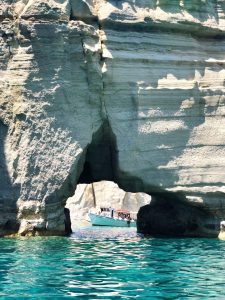Greece’s Minister of Maritime Affairs and Insular Policy Christos Stylianides presented the government’s plan to upgrade the country’s maritime transport during the OT FORUM “A New Productive Model – ‘Greece 2030’,” on Monday Nov. 2.
This ambitious plan includes the modernization of port infrastructure, the renewal of the ferry fleet, and strengthening the maritime cluster, following the European Commission’s approval for the participation of investment funds in these projects. It is expected that funding on the project could reach 3 billion euros over the coming years.
This comprehensive, long-term strategy aligns with Greece’s adaptation to the “green” transition in ports and ferry operations. It heavily involves the productive base of Greek maritime equipment manufacturers and domestic shipyards.
Stylianides estimates that around 500 million euros will be allocated in the coming years for port infrastructure, another 500 million euros for “greening” ferry vessels, and significant funds will also support maritime equipment companies supplying new technologies for ships. Furthermore, Greece’s shipbuilding and repair sectors will participate in the construction and conversion of new vessels, generating new jobs for the sectors’ workers.
The minister also highlighted the European Commission’s approval for investment funds to co-finance these projects alongside subsidies, primarily from the EU Structural Funds, as a key factor.
Part of the funding will be directed toward building modern vessels exclusively servicing the so-called “unprofitable routes” namely referring to those connecting remote islands in the Aegean to the country’s mainland, during non-tourist months.
These ships will operate under ten-year contracts with the Greek state, ensuring predictable cash flows that can be leveraged for bank financing.
Additionally, the minister emphasized streamlining the management of unprofitable routes, enhancing maritime transport safety, and eliminating any gaps in service or exploitative practices. Another goal is the creation of time slots in the ferry network, similar to those in aviation, reinforcing order and efficiency.
The Minister reiterated his firm stance: “We will not negotiate on safety matters.”


